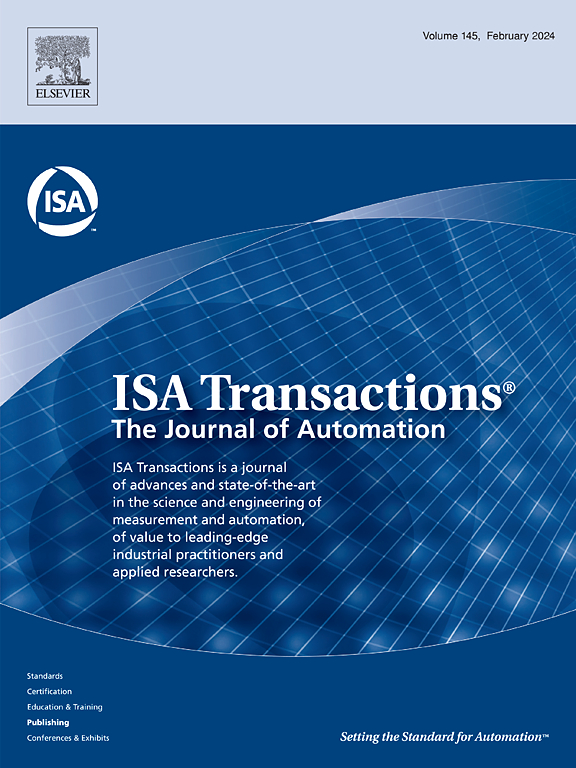Adaptive robust motion control for hydraulic load sensitive systems considering displacement dynamic compensation
IF 6.3
2区 计算机科学
Q1 AUTOMATION & CONTROL SYSTEMS
引用次数: 0
Abstract
Hydraulic load-sensitive systems (HLSS) are widely used for high power density and energy efficiency. This study introduces an adaptive, energy-efficient HLSS with a valve-controlled variable motor. The system faces challenges from non-linearities, including internal higher-order dynamics due to displacement changes and external unknown disturbances, which hinder precision applications. To address this issue, this study explores HLSS principles to develop an accurate system model. Subsequently, an adaptive robust motion control that considers displacement compensation (DCARC) is proposed using the established model. DCARC can learn unknown parameters online and compensate the model more accurately to improve control accuracy. Experiments show that considering the higher order dynamic effects caused by displacement in the system can improve model accuracy and effectively reduce the burden of parameter adaptation and robust feedback terms. High-precision and energy-efficient HLSS motion is verified and realized in the study. The control accuracy of DCARC is 19.4% higher than that of conventional adaptive robust control (ARC). Under experimental conditions, the proposed system can improve energy efficiency by up to five times compared to valve-controlled fixed displacement motor systems (VFDS).
考虑位移动态补偿的液压负载敏感系统的自适应鲁棒运动控制。
液压负载敏感系统(HLSS)因其高功率密度和高能效而得到广泛应用。本研究介绍了一种带阀控变量马达的自适应高能效 HLSS。该系统面临着非线性带来的挑战,包括位移变化引起的内部高阶动态和外部未知干扰,这阻碍了系统的精密应用。为解决这一问题,本研究探讨了 HLSS 原理,以建立精确的系统模型。随后,利用建立的模型提出了一种考虑位移补偿的自适应鲁棒运动控制(DCARC)。DCARC 可以在线学习未知参数,并对模型进行更精确的补偿,从而提高控制精度。实验表明,考虑系统位移引起的高阶动态效应可以提高模型精度,并有效减轻参数适应和鲁棒反馈项的负担。研究验证并实现了高精度、高能效的 HLSS 运动。DCARC 的控制精度比传统的自适应鲁棒控制(ARC)高 19.4%。在实验条件下,与阀控定量马达系统(VFDS)相比,所提出的系统可将能效提高五倍。
本文章由计算机程序翻译,如有差异,请以英文原文为准。
求助全文
约1分钟内获得全文
求助全文
来源期刊

ISA transactions
工程技术-工程:综合
CiteScore
11.70
自引率
12.30%
发文量
824
审稿时长
4.4 months
期刊介绍:
ISA Transactions serves as a platform for showcasing advancements in measurement and automation, catering to both industrial practitioners and applied researchers. It covers a wide array of topics within measurement, including sensors, signal processing, data analysis, and fault detection, supported by techniques such as artificial intelligence and communication systems. Automation topics encompass control strategies, modelling, system reliability, and maintenance, alongside optimization and human-machine interaction. The journal targets research and development professionals in control systems, process instrumentation, and automation from academia and industry.
 求助内容:
求助内容: 应助结果提醒方式:
应助结果提醒方式:


